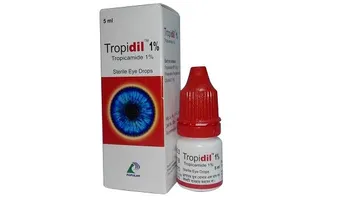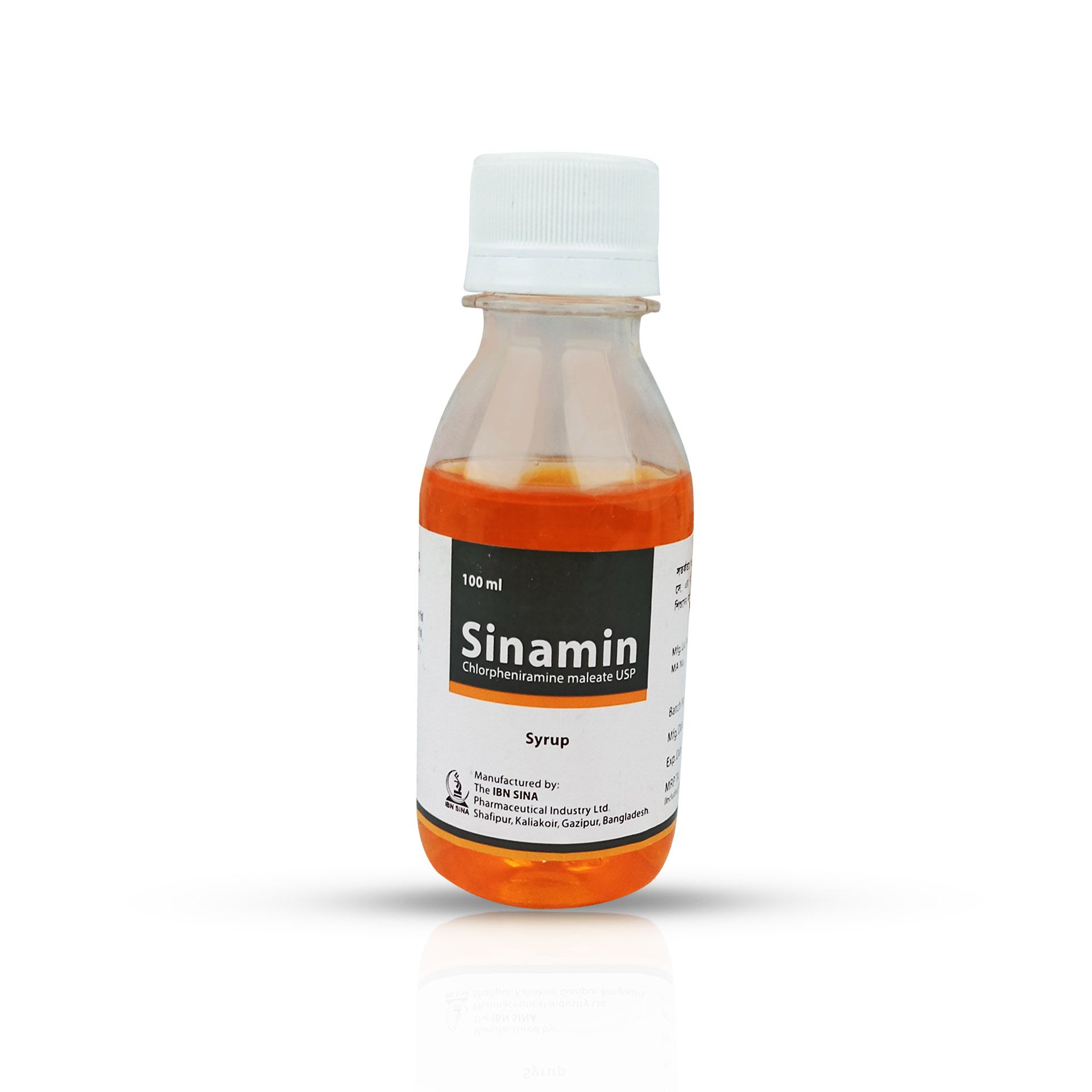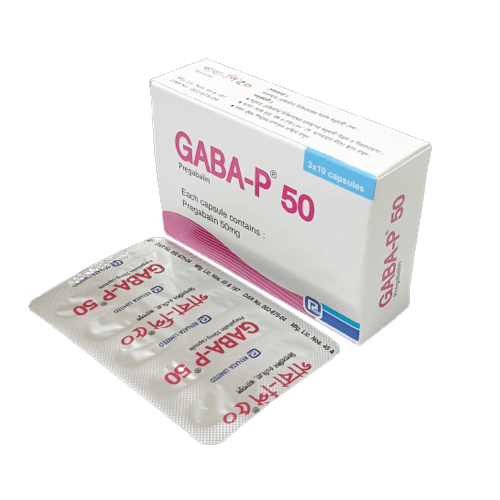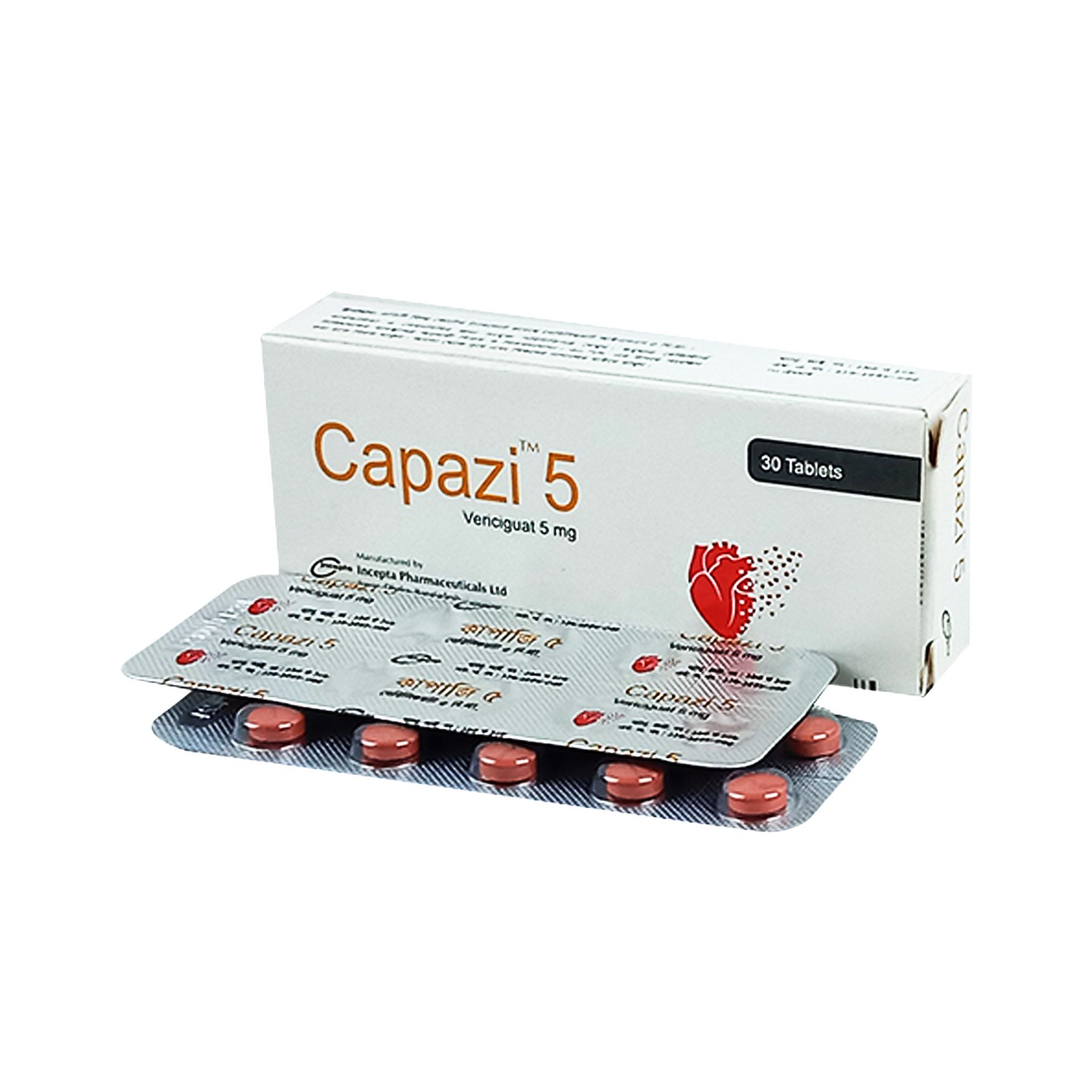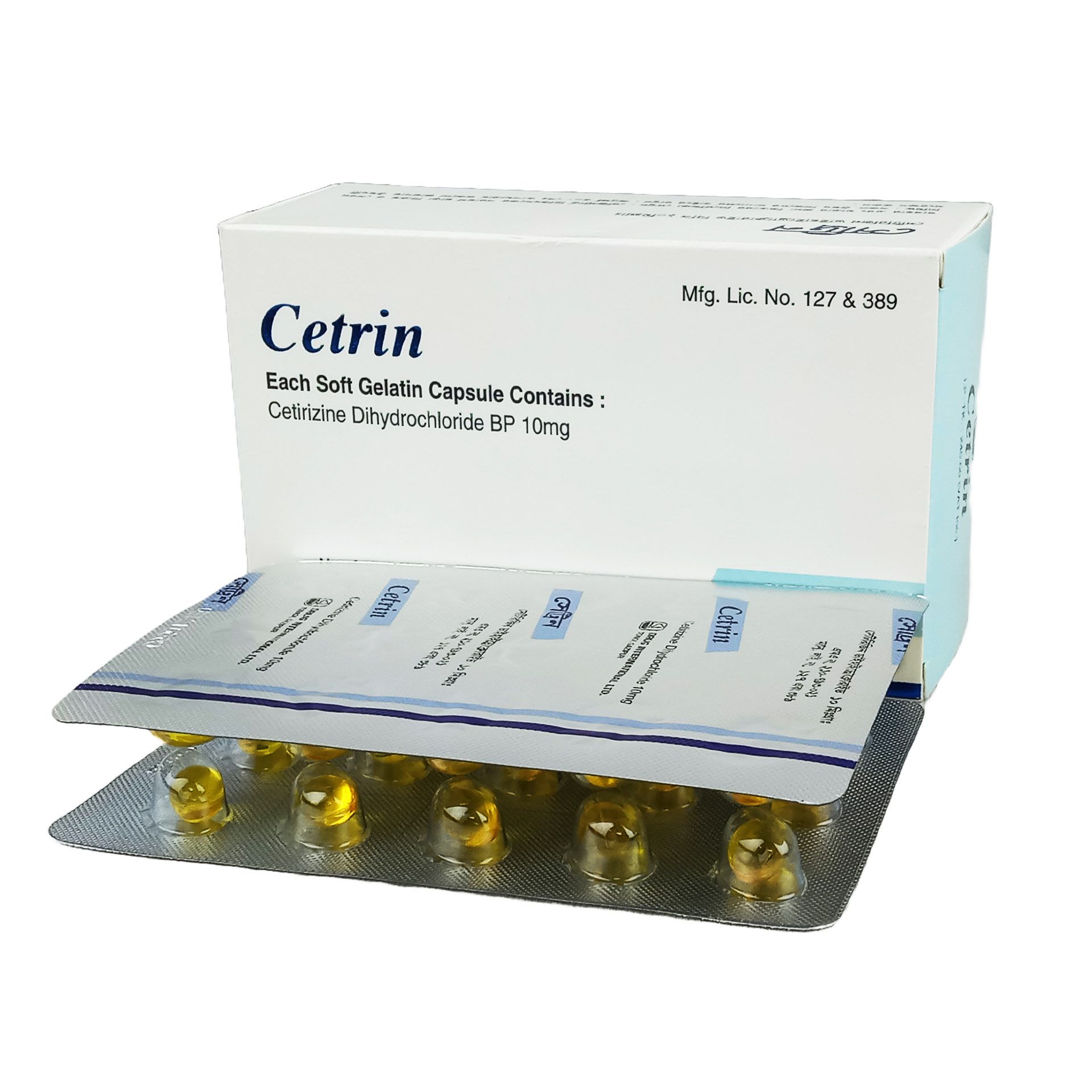



Cetrin Capsule - (10mg)
(0
reviews)
Sold by
Ashik Medical
Price
৳54.00
৳60.00
/pc
-10%
Club Point:
20
Refund
Not Applicable
Share
Top Selling Products
-
৳76.50
৳85.00 -
৳27.00
৳30.00 -
৳32.00
৳35.00 -
৳126.00
৳140.00 -
৳450.00
৳500.00 -
৳135.00
৳150.00
Reviews & Ratings
0
out of 5.0
(0
reviews)
There have been no reviews for this product yet.
Introduction
Cetrin Capsule belongs to a group of medicines called antihistamines. It is used to treat various allergic conditions such as hay fever, conjunctivitis and some skin reactions, and reactions to bites and stings. It relieves watery eyes, runny nose, sneezing, and itching. Cetrin Capsule can be taken with or without food. The dose required for you may vary depending on what you are taking it for. This medicine is usually taken in the evening but follow the advice of your doctor on how to take it. You may need this medicine only on days you have symptoms, but if you are taking it to prevent symptoms you should take it regularly. If you miss doses or stop taking it earlier than advised, your symptoms may come back. This medicine is generally very safe. The most common side effects include feeling sleepy or dizzy. These are usually mild and go away after a couple of days as your body adjusts. Consult your doctor if any of the side effects persist or worry you. You should avoid alcohol while taking this medicine. Before taking it, tell your doctor if you have any kidney problems or epilepsy. Your dose may need to be modified or this medicine may not be suitable. Some other medicines can interact with this medicine so let your healthcare team know what else you are taking. You should also talk to your doctor before using this medicine if you are pregnant or breastfeeding, although it is not thought to be harmful.
Uses of Cetrin Capsule
- Allergic conditions
Side effects of Cetrin Capsule
Common
- Sleepiness
How to use Cetrin Capsule
Take this medicine in the dose and duration as advised by your doctor. Swallow it as a whole. Do not chew, crush or break it. Cetrin Capsule may be taken with or without food, but it is better to take it at a fixed time.
How Cetrin Capsule works
Cetrin Capsule is an antihistaminic medication. It treats allergy symptoms such as itching, swelling, and rashes by blocking the effects of a chemical messenger (histamine) in the body.
Quick Tips
- Your doctor has prescribed Cetrin Capsule to help relieve allergy symptoms such as itching, swelling, and rashes.
- It's much less likely to make you feel sleepy than other similar medications.
- It is okay to take Cetrin Capsule with most other medications as it has few drug interactions.
- Use caution while driving or doing anything that requires concentration as Cetrin Capsule can cause dizziness and sleepiness.
- Do not drink alcohol while taking Cetrin Capsule as it may cause increased sleepiness.
- Stop taking Cetrin Capsule at least three days before taking an allergy test as it can affect the test results.
Brief Description
Indication
Allergic rhinitis, Hay fever, Allergies, Urticaria
Administration
May be taken with or without food.
Adult Dose
Oral Allergic conditions Adult: 10 mg once daily or 5 mg bid. Elderly: Initially, 5 mg once daily. Hepatic impairment: Initially, 5 mg once daily. Syrup: Adults: 2 teaspoon once daily or 1 teaspoon twice daily.
Child Dose
Oral Allergic conditions Child: 6-23 mth 2.5 mg once daily increased to max of 2.5 mg bid in childn >12 mth; 2-5 yr 5 mg once daily or in 2 divided doses; >6 yr 10 mg once daily or in 2 divided doses. Syrup: Children over 6 years: 2 teaspoon once daily or 1 teaspoon twice daily. Children 2-6 years: 1 teaspoonful once daily or 1/2 teaspoon twice daily. <2 years: Safety and efficacy not established
Renal Dose
Renal impairment GFR >50 mL/min: Dose adjustment not necessary GFR ? 50 mL/min: 5 mg PO qDay Peritoneal dialysis: 5 mg PO qDay Intermittent hemodialysis: 5 mg PO qDay; may also administer 3 times weekly
Contraindication
Hypersensitivity; lactation.
Mode of Action
Cetirizine is a potent and highly selective antagonist of the peripheral histamine H1-receptor on effector cells in the GI tract, blood vessels and resp tract.
Precaution
Hepatic or renal impairment; elderly; tasks requiring mental alertness eg, driving or operating heavy machinery; pregnancy. Lactation: Excreted in breast milk; use not recommended
Side Effect
>10% Somnolence (2-14%),Headache (11-14%) 1-10% Fatigue (5.9%),Dry mouth (5%),Dizziness (2%),Diarrhea (2-3%),Malaise (4%),Bronchospasm (2-3%),Vomiting (2-3%),Epistaxis (2-4%) <1% Stomach pain,Drowsiness,Angioedema,Fussiness,Hallucinations,Hypotension,Tremor,Tongue discoloration
Pregnancy Category Note
Pregnancy There are no adequate and well-controlled studies in pregnant women Lactation Cetirizine has been reported to be present in human breast milk In mice and beagle dogs, studies indicated that cetirizine was excreted in milk When a drug is present in animal milk, it is likely it will be present in human milk
Interaction
Additive CNS depression when administered concomitantly w/ other CNS depressants (e.g. sedatives, tranquilisers).
Frequently Bought Products
Product Queries (0)
Login Or Registerto submit your questions to seller
Other Questions
No none asked to seller yet
Top Selling Products
-
৳76.50
৳85.00 -
৳27.00
৳30.00 -
৳32.00
৳35.00 -
৳126.00
৳140.00 -
৳450.00
৳500.00 -
৳135.00
৳150.00

